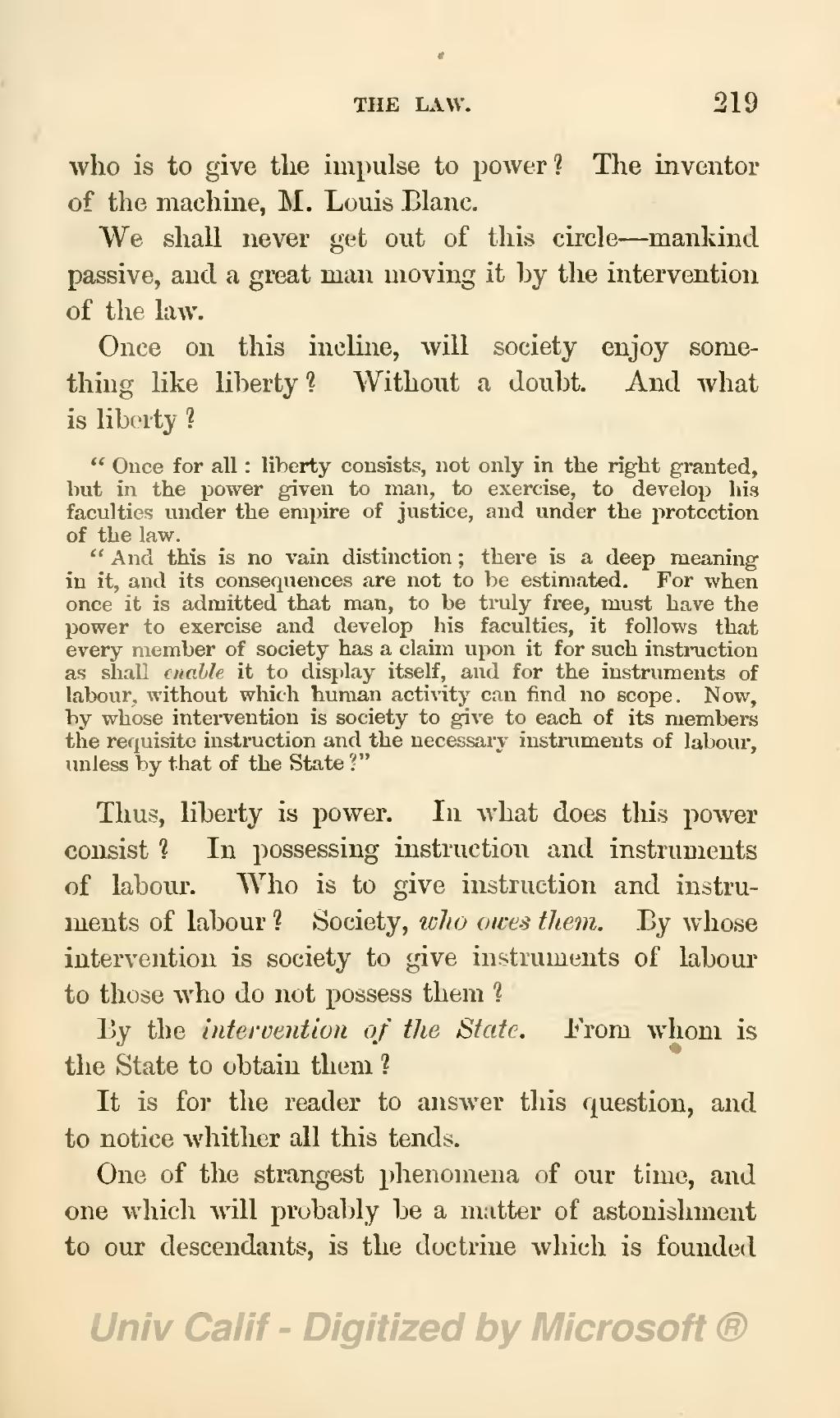who is to give the impulse to power? The inventor of the machine, M. Louis Blanc.
We shall never get out of this circle—mankind passive, and a great man moving it by the intervention of the law. Once on this incline, will society enjoy something like liberty? Without a doubt. And what is liberty?
"And this is no vain distinction; there is a deep meaning in it, and its consequences are not to be estimated. For when once it is admitted that man, to be truly free, must have the power to exercise and develop his faculties, it follows that every member of society has a claim upon it for such instruction as shall enable it to display itself, and for the instruments of labour, without which human activity can find no scope. Now, by whose intervention is society to give to each of its members the requisite instruction and the necessary instruments of labour, unless by that of the State?"
Thus, liberty is power. In what does this power consist? In possessing instruction and instruments of labour. Who is to give instruction and instruments of labour? Society, who owes them. By whose intervention is society to give instruments of labour to those who do not possess them?
By the intervention of the State. From whom is the State to obtain them?
It is for the reader to answer this question, and to notice whither all this tends.
One of the strangest phenomena of our time, and one which will probably be a matter of astonishment to our descendants, is the doctrine which is founded
